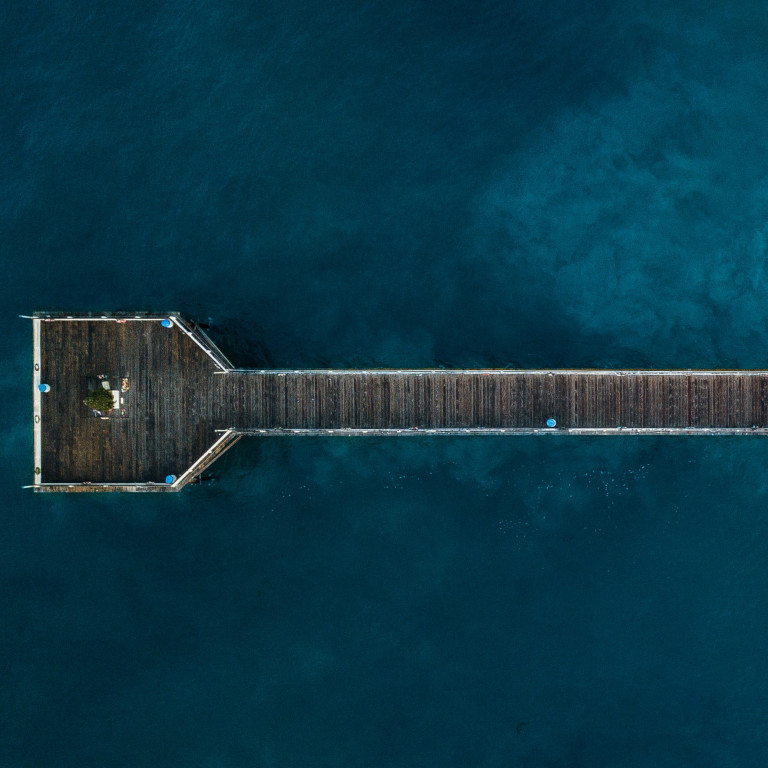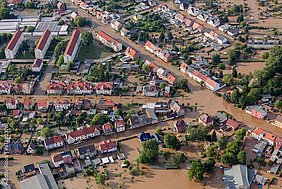Normally, we report here on changes and innovations in the German healthcare system, the DRGs and other reimbursement topics. Because of the current situation, we are giving an update today on the flood disaster that hit the area around the river Ahr in the night of the 14th of July, written from the perspective of our co-CEO Sven Sauermann who was directly affected.
First of all, it should be noted that it was a flood that resembled a tsunami with its unimaginable force and violence, bringing destruction, suffering and death to the Ahr valley and changing this area forever. The damage visible on both sides of the river in the city of Insul after the flooding is enormous. The landscape and the village have been permanently changed, the river has a different riverbed, three full houses and one adjoining building are missing in our village alone. All the inhabitants of Insul have miraculously survived. We cannot understand why we were not warned in time as the danger was supposably known early enough. The devastation caused by the water is unimaginable. It will take years to fully restore the infrastructure. Many of the houses that are still standing were permanently damaged.
For the first twelve hours after the flooding, we were completely cut off. Then the first helicopters arrived and evacuated individuals. The roads in and out of the valley were impassable due to the heavy rain on the mountains. It took about 24 hours for the first helpers (mostly private individuals) to arrive on the scene.
The first things to arrive after the flood were mobile toilets, containers with utility water, large quantities of canned food, drinking water, power generators, petrol and diesel canisters, buckets, shovels, brooms, rubber boots and much more – in that exact order, according to my memory. The new fibre optic cables for fast internet were torn and tattered, sticking out from holes up to four metres deep. The flood had washed them out just like the roads, paths and houses. Mobile phone communication was only partially possible again 30 hours after the flooding and finally allowed us to inform relatives on the other side of the river (bridges and streets were washed away or impassable). Meanwhile, electricity comes from large diesel-powered generators, one for a couple houses, and a new bridge was built by the German army. Thanks goes to Telekom, that lifted our data limits for 30 days and to Elon Musk, who shortly provided free internet for all via a satellite from his company Starlink.
We are incredibly grateful for the help we have received from countless and often unknown helpers. Above all, the many private individuals, but also volunteer fire fighters from all over Germany, who "invaded" the village daily, have helped us indescribably. Without them, the chaos could not have been cleared. Furniture, kitchens, doors, walls and floor coverings, screed, heaters, mud and rubbish were moved to the streets by the many helpers in no time at all. We didn't even know most of these volunteers, they just showed up at once. On the street, the dirt was picked up by tractors and shovel excavators, mostly privately owned, and driven to the collection point. It happened just like that, without arrangement, without commands. Everyone pitched in. There was no higher organisation, everyone helped daily to the point of exhaustion. Thank you to all who lend a hand!
Today, almost four weeks later, a lot of mud and debris has been cleared, but the rubbish piles up for kilometres along the Ahr. The heaps of dirt, cars, oil tanks and washing machines, trees and fences tower up to 20 or 30 meters high.
The German army, the Federal Agency for Technical Relief, the fire brigade, the relief organisations and the police are taking care of the infrastructure so that electricity and water can flow again in the future, the masses of rubbish will be collected, the telephone network and the internet are working and roads and bridges in our villages can be used again. On another note, we are concerned about the many individual fates that cannot be helped with heavy equipment. The flood has not only damaged the landscape but has also left grave emotional scars on many. This made mutual support and sympathy all the more important, for which we want to say thank you wholeheartedly.


